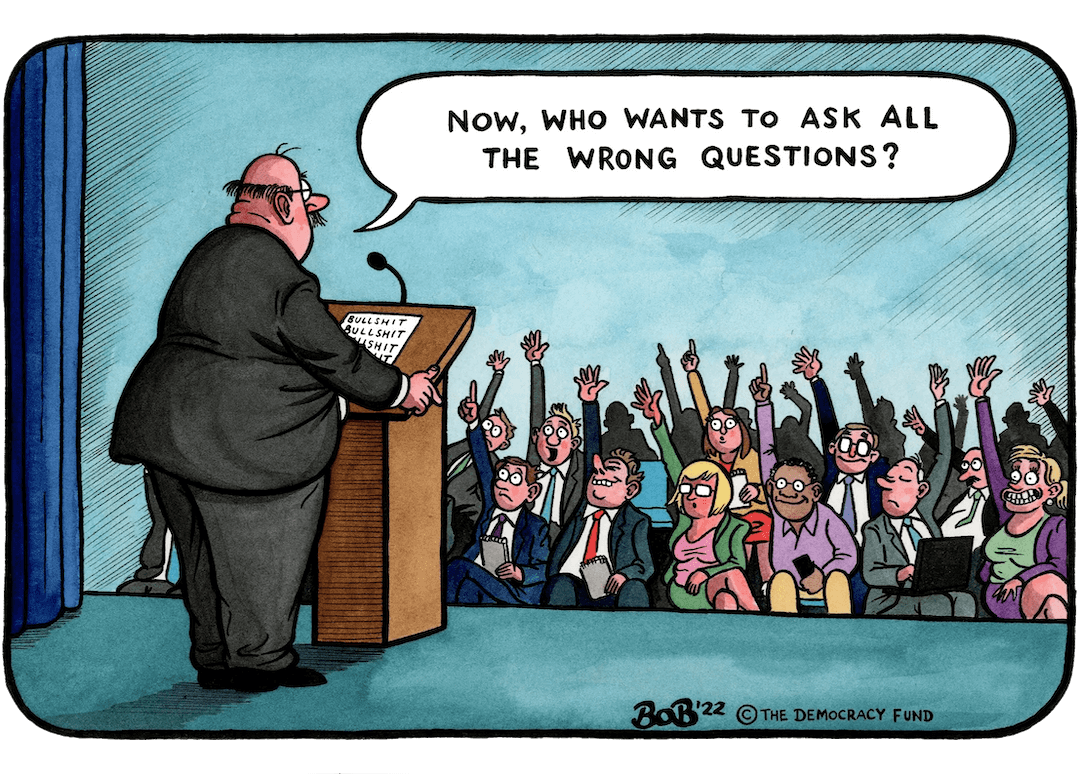
TOWARDS the end of 2020, editors of major UK media outlets were summoned, one by one, and not for the first time, to individual briefings at Downing Street.
Apparently, all the meetings followed the same format. Each editor was shown into Boris Johnson’s office, where Chris Whitty and Patrick Vallance gave a presentation about how a devastating next wave of ‘Covid’ was going to kill 500,000 people and cripple the NHS.
The usual bogus decontextualised data and ludicrously misleading graphs were waved in their faces. Then the two witch-doctors slithered out of the room and Johnson instructed the editors to get behind a winter lockdown.
At this point, one editor decided to interrogate the Prime Minister. He said something along these lines: ‘Come on, you know as well as I do that all of that was complete nonsense. No country on Earth experienced half a million deaths in the first wave and they’re telling us to expect it in a second wave? There’s no justification for another lockdown – why are you doing this?’
Boris Johnson adopted a haunted and helpless expression, gestured towards the door through which Whitty and Vallance had just exited and said: ‘I’ve got to do what they tell me.’
I heard this story in early 2021 from a colleague at the Telegraph. I won’t name the editor it refers to, but I will say it was not a Telegraph editor. I can’t prove that it happened although I have no reason to doubt its veracity.
I think it’s an interesting anecdote, particularly given the stage we have reached in this dreadful saga. It suggests that the perceived relationship between the media, the scientists and the politicians was not exactly as many assumed.
If true, it confirms that the Prime Minister was not in charge of the country during one of the most significant periods in its history, and that this was something apparent to several highly influential journalists.
One might say that it would have been irresponsible or very bad form for the journalist concerned to go away and write up the details of a private, off-the-record conversation with the Prime Minister. On the other hand, you could argue that the conventional rules and standards of journalistic practice had been flagrantly disregarded for many months at that point, so why worry?
At the very least, this encounter ought to have sent shockwaves through Fleet Street. Investigations should have been launched. Serious questions needed to be asked about how our country was being governed and by whom.
The people of the UK were being subjected to some of the most extreme, tyrannical, immoral, unnecessary and legally dubious policies ever concocted. If there was uncertainty about where exactly these policies were coming from and who had the final say, the public surely had a right to know.
By the end of 2020, many people had realised that the mechanics of democracy did not seem to be functioning as we had been told. Those asking the very reasonable question of who exactly was calling the shots were being labelled bonkers conspiracy theorists.
Yet here was the Prime Minister himself confirming that he was not in control and, it seems, agreeing that these policies were mad, yet it wasn’t considered newsworthy. People were dying, lives were being ruined, all as a direct result of the insane measures dictated by some nebulous level of authority. But the narrative had to be protected at all costs.
Now things have shifted slightly. Operation Backtrack has begun. A childish and transparent blame game is well under way. Certain journalists are stepping forward to ‘expose’ the great scandal of lockdowns. Because it’s now safe to do so.
They want you to think that they’ve recently discovered this. They haven’t. They knew corruption and scandal was widespread at the top of government a long time ago and decided that it needn’t concern you.
Obviously, this does not apply to all journalists. There have been many in the expanding alternative media who have, from the beginning, raised the alarm and asked the right questions. Alas, none of them was being invited to these clandestine meetings at Number Ten.
Journalists are not supposed to be gatekeepers of the truth. They shouldn’t get to decide what truths the public are allowed to hear any more than doctors should get to decide who gets treated and who doesn’t.
We need journalists who seek the truth above all else and upon finding it, however unpleasant or inconvenient it may be, give it to the people without hesitation. We need them now more than ever.
The media has decided it’s time to reflect on lockdowns and pretend that it’s just become clear that they may have constituted a massive criminal act.
However, an even bigger scandal, a more heinous crime, is continuing today. And these journalists are doing the same thing again. How long do we have to wait before they start writing their columns about the great vaccine scandal?
It’s tempting to write these people off. Perhaps we should take the view that they’ve had their chance and failed miserably in their responsibilities. But I would rather see them search deeply for any moral conscience they have left, find the requisite levels of courage and integrity and start doing their jobs.
How many more months will they spend sitting comfortably on the truth, watching millions of people suffer at the hands of a lie?






























































































































































